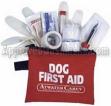April 7th 2007
Pet Food Recall Conspiracy by President
Bush?
Kenneth Andrew Bell
 This pet food recall is staged. Never announce
it...though watch exactly who benefits financially and politically
from this kind of event and premeditation. As time goes by you
will see silly regulations appear that should never be there...and
watch exactly who benefits or calls the shots financially. Were
any of these companies or entities that WILL benefit from this,
recently purchased by investors that had political ties to the
Bush administration and the pet industry? There are quite a few
when you do just a little research. This is another premeditation
event conjured by politics and businesses with total contempt
for the animals and their American Citizen owners.
This pet food recall is staged. Never announce
it...though watch exactly who benefits financially and politically
from this kind of event and premeditation. As time goes by you
will see silly regulations appear that should never be there...and
watch exactly who benefits or calls the shots financially. Were
any of these companies or entities that WILL benefit from this,
recently purchased by investors that had political ties to the
Bush administration and the pet industry? There are quite a few
when you do just a little research. This is another premeditation
event conjured by politics and businesses with total contempt
for the animals and their American Citizen owners.
Look how quickly we found the potential source for the possible
poisoning? It was like 9/11 when we had within hours pictures
of every single highjacker and their real names plastered on every
screen in the world. This administration is sick. Using animals
and pets as "weapons" against their owners is a very
real tactic enjoyed by this administration. If you have a rooster
that is on your property that "looks uncomfortable"...that
reason gives the Human Society POLICE POWER to close down any
pet business or any homeowner and all of their pets at any time.
(Pinellas County Humane Society director Barbara Snow on TV interviews
with video and sound March 07.
http://www.CutePetGazette.com
Dogs to Exchange Bow-Wow Vows in Mock
Ceremony
Jill Kobe, Aspen Grove's GM
 A
first-of-its kind mass doggy wedding will take place on May 19,
2007 at the Aspen Grove Lifestyle Center in Littleton, Colorado.
The event is a fundraiser for the Denver Dumb Friends League.
A
first-of-its kind mass doggy wedding will take place on May 19,
2007 at the Aspen Grove Lifestyle Center in Littleton, Colorado.
The event is a fundraiser for the Denver Dumb Friends League.
Betrothed pooches of all shapes and sizes
are expected at the service, which is hoping to draw about 300
canines. A solid turnout and a new record in the Guinness Book
of World Records could be set.
Lawyers will not be on hand to pen poochie
pre-nups, but dogs that don't have a partner can participate in
a round of speed dating before the ceremony to find the perfect
mate.
http://www.shopaspengrove.com
National Pet First-Aid Awareness Month
Denise Fleck, Sunny-dog Ink
 Although Sunny had been adopted
into a loving home, her time as a stray left her with a compulsion
to never pass up a free meal. One morning her "mom"
(me) awoke to find the 80-pound Labrador with all four paws on
the kitchen countertop and her snout in a no-longer-covered bowl
of chocolate kisses. Luckily this pet parent's timing saved the
day and only a few of the chocolate morsels were consumed by the
mischievous canine. The dog suffered only a scolding, but a much
smaller dog might have experienced rapid heartbeat, vomiting,
seizures and even death.
Although Sunny had been adopted
into a loving home, her time as a stray left her with a compulsion
to never pass up a free meal. One morning her "mom"
(me) awoke to find the 80-pound Labrador with all four paws on
the kitchen countertop and her snout in a no-longer-covered bowl
of chocolate kisses. Luckily this pet parent's timing saved the
day and only a few of the chocolate morsels were consumed by the
mischievous canine. The dog suffered only a scolding, but a much
smaller dog might have experienced rapid heartbeat, vomiting,
seizures and even death.
Each year, thousands of pets needlessly
suffer and many die from ingesting common household foods as well
as from injuries and sudden illness. Knowing what to do during
those first few moments can truly make a difference between life
and death for your pet. According to the American Animal Hospital
Association (AAHA), one out of four additional pets could be saved
if just one Pet First-Aid technique was applied prior to getting
veterinary help.
Pet First-Aid is the FIRST step (and often
the most critical) in a line of treatments before complete medical
attention can be administered. The most accomplished Veterinarian
will not be able to bring your dog or cat back to life once they
have died, but by knowing Pet CPR, YOU can keep their heart and
lungs working until professional medical help is available. If
you know how to treat your pet for Heat Stroke, you can prevent
brain damage and death. If you learn how to bandage a Wound,
you can stop bleeding and prevent infection. If you learn how
to alleviate Choking, you can prevent your pet from losing consciousness,
andif you learn how to properly induce vomiting, you can expel
poison and save your pet's life! Fortunately Sunny didn't need
such drastic measures over the chocolate that day, but the incident
made me want to be prepared in case Sunny, or any of the six canines
who have since crossed our threshold, needed help, so I learned
these important skills and have been teaching them since 1999.
Even if you have taken a human First-Aid
course, pet-specific training is essential since we can't ask
our dog or cat, "Where does it hurt?" or "What
did you eat out of the trash?" Student and Pet Sitter Kate
Ahrens summed it up best when she said, "The last thing you
want is to wish you HAD taken a Pet First-Aid & CPR Class."
Don't put off what you can do in April!
Take part in National Pet First-Aid Awareness Month and
become your dog or cat's hero! Free presentations and four-hour
classes will be offered throughout the month of April. For more
information, contact Sunny-dog Ink at (818) 951-7962 or visit
www.sunnydogink.com
Fat Pets is a Poor Prognosis
Dr. Jim Humphries, Veterinary
News Network
 The saying goes that pets look
like their owners. Well these days that old adage holds true
more than ever, as the obesity epidemic expands to our cats and
dogs. Obesity is a very significant problem in dogs and cats,
says veterinarian Scott Allen Brown, head of the small animal
medicine department at the University of Georgia in Athens. About
1 in 5 to 1 in 3 animals are overweight or obese. Rocky and Fluf
are born to be scavengers, but today they don't have to stop their
prey or scrounge for a meal. We see large numbers of domesticated
pets being fed very high quality food, but they live very sedentary
lives with limited exercise, says Brown. Quite honestly, it is
analogous to what we see in their pet owners. Lassie earned her
chow by working on the farm and rescuing Timmy, but pets today
are born retired.
The saying goes that pets look
like their owners. Well these days that old adage holds true
more than ever, as the obesity epidemic expands to our cats and
dogs. Obesity is a very significant problem in dogs and cats,
says veterinarian Scott Allen Brown, head of the small animal
medicine department at the University of Georgia in Athens. About
1 in 5 to 1 in 3 animals are overweight or obese. Rocky and Fluf
are born to be scavengers, but today they don't have to stop their
prey or scrounge for a meal. We see large numbers of domesticated
pets being fed very high quality food, but they live very sedentary
lives with limited exercise, says Brown. Quite honestly, it is
analogous to what we see in their pet owners. Lassie earned her
chow by working on the farm and rescuing Timmy, but pets today
are born retired.
About half of all overweight pet owners
can't identify their pet as such. So owners need to monitor their
pets weight by sight, touch and weigh-ins about 4 times a year.
Dogs should have a slight indentation like a waist when they stand
and when they are viewed from overhead. Cats and smaller dogs
can be weighed at home. Simply get on the scale with your pet
in your arms then subtract your own weight from that total. Check
with your veterinarian to see if the weight is within a healthy
range for your pet.
http://www.VetNewsNet.com
Ninja Turtles In; Pet Turtles Out
Beth Preiss, Dir. Of Exotic
Pets Campaign HSUS
 Anticipating the return of "Turtlemania"
with Friday's release of "TMNT," the latest in the series
of Teenage Mutant Ninja Turtles movies, The Humane Society of
the United States is urging moviegoers not to buy live turtles.
Anticipating the return of "Turtlemania"
with Friday's release of "TMNT," the latest in the series
of Teenage Mutant Ninja Turtles movies, The Humane Society of
the United States is urging moviegoers not to buy live turtles.
The HSUS is trying to prevent a repeat of 1990, when the release
of the first Teenage Mutant Ninja Turtles movie resulted in increased
sales of pet turtles. Sales of small turtles, which are defined
by law as animals with shells less than four inches long, are
illegal in the United States. The prohibition has been in effect
since 1975 to help prevent the spread of Salmonella. The Centers
for Disease Control and Prevention (CDC) estimates the ban has
prevented 100,000 children from getting Salmonella infections
each year.
Because of the disease risk, the CDC recommends that turtles be
kept out of homes with children under five years old, pregnant
women, senior citizens and people with weakened immune systems.
Even indirect contact can spread the disease because Salmonella
can live on surfaces for days.
 Despite the danger of Salmonella,
illegal turtle sales may be on the rise. In recent months, The
HSUS has seen small turtles illegally for sale at malls, a flea
market and over the Internet.
Despite the danger of Salmonella,
illegal turtle sales may be on the rise. In recent months, The
HSUS has seen small turtles illegally for sale at malls, a flea
market and over the Internet.
"Sales of pet turtles are dangerous for human health, animal
welfare, and the environment," says Beth Preiss, director
of the exotic pets campaign for The HSUS. "Turtles won't
survive in a plastic dish with a palm tree, but with decent care
they can live for decades, outgrowing their tanks and outlasting
childhood interest."
Although they may be marketed as low-maintenance
pets, turtles have complex needs that are difficult to meet in
captivity. Many turtles die due to rough handling during transport
or inadequate care afterwards. Unwanted turtles released outdoors
may die; if they survive they can spread disease to native species
and out-compete them for resources.
"In general pets should not be impulse purchases," adds
Preiss. "Moviegoers should enjoy the Ninja Turtles on the
screen, but in the real world we hope they will avoid buying turtles
as pets."
Consumers who see illegal turtle sales can report them to the
Food and Drug Administration (FDA), which enforces the law. Contact
information can be found at: www.fda.gov/opacom/backgrounders/complain.html
.
http://www.HSUS.org
Time to Discard Descartes
Rae Ann Kumelos, Voice of the
Animal
 The 17th century philosopher of
Rene Descartes toward the animal world has had horrific long-range
effects on the way society has treated animals. From factory
farms to product testing, animals are still treated as machines
based upon this philosophy of bad science and incorrect assumptions.
But, things are changing. Learn how the language of rats, monkeys
and whales is shaping the philosophy of the future.
The 17th century philosopher of
Rene Descartes toward the animal world has had horrific long-range
effects on the way society has treated animals. From factory
farms to product testing, animals are still treated as machines
based upon this philosophy of bad science and incorrect assumptions.
But, things are changing. Learn how the language of rats, monkeys
and whales is shaping the philosophy of the future.
http://www.VoiceOfTheAnimal.org
Do Animals Enjoy Life?
Jonathan Balcombe, Ph.D., Pleasurable
Kingdom: Animals and the Nature of Feeling Good
 The
recognition of animal pain and stress, once controversial, is
now acknowledged by legislation in many countries, but there is
no formal recognition of animals' ability to feel pleasure. Pleasurable
Kingdom is the first book for lay-readers to present new evidence
that animals--like humans--enjoy themselves. It debunks the popular
perception that life for most is a continuous, grim struggle for
survival and the avoidance of pain. Instead it suggests that creatures
from birds to baboons feel good thanks to play, sex, touch, food,
anticipation, comfort, aesthetics, and more. Combining rigorous
evidence, elegant argument and amusing anecdotes, leading animal
behavior researcher Jonathan Balcombe proposes that the possibility
of positive feelings in creatures other than humans has important
ethical ramifications for both science and society.
The
recognition of animal pain and stress, once controversial, is
now acknowledged by legislation in many countries, but there is
no formal recognition of animals' ability to feel pleasure. Pleasurable
Kingdom is the first book for lay-readers to present new evidence
that animals--like humans--enjoy themselves. It debunks the popular
perception that life for most is a continuous, grim struggle for
survival and the avoidance of pain. Instead it suggests that creatures
from birds to baboons feel good thanks to play, sex, touch, food,
anticipation, comfort, aesthetics, and more. Combining rigorous
evidence, elegant argument and amusing anecdotes, leading animal
behavior researcher Jonathan Balcombe proposes that the possibility
of positive feelings in creatures other than humans has important
ethical ramifications for both science and society.
http://www.ovc.uoguelph.ca/associations/awc/2005/Balcombe.html
Do Cats Think and Feel?
Annie Bruce, Good Cats Wear
Black
 There is so much evidence that
cats think and feel and that they're even psychic. That's why
the church outlawed them for 100's of years because cats are able
to predict weather, including rain and earthquakes. Back in the
old days, prediction of any kind was considered to be related
to the Devil or working with Satan. Also, a good percentage of
cats and dogs are able to predict when their owners are returning
home. How do they do this?
There is so much evidence that
cats think and feel and that they're even psychic. That's why
the church outlawed them for 100's of years because cats are able
to predict weather, including rain and earthquakes. Back in the
old days, prediction of any kind was considered to be related
to the Devil or working with Satan. Also, a good percentage of
cats and dogs are able to predict when their owners are returning
home. How do they do this?
http://www.GoodCatsWearBlack.com
Do Dogs Think and Feel?
Dr. Stanley Coren How
Dogs Think: What the World Looks Like to Them and Why They Act
the Way They Do
 Bestselling
author, psychologist, and world-renowned expert on dog behavior
and training Dr. Stanley Coren presents the most informative,
in-depth, fascinating book yet on dogs with numerous funny, informative
anecdotes, experiments, and firsthand observations. It lets you
see through a dog's eyes, hear through his ears, and even sense
the world through his nose. How Dogs Think also answers
questions about our canine companions that have puzzled many:
Do dogs feel guilt? Do they have an appreciatio n of art or music?
Can a dog learn how to do something just by watching another dog
or even a person do it? Do dogs dream? What is the nature of dog
personality? Which behaviors are prewired into your dog, and which
can you actually change? And, can dogs actually sense future earthquakes
or detect cancer? Find out the answers to these questions and
more.
Bestselling
author, psychologist, and world-renowned expert on dog behavior
and training Dr. Stanley Coren presents the most informative,
in-depth, fascinating book yet on dogs with numerous funny, informative
anecdotes, experiments, and firsthand observations. It lets you
see through a dog's eyes, hear through his ears, and even sense
the world through his nose. How Dogs Think also answers
questions about our canine companions that have puzzled many:
Do dogs feel guilt? Do they have an appreciatio n of art or music?
Can a dog learn how to do something just by watching another dog
or even a person do it? Do dogs dream? What is the nature of dog
personality? Which behaviors are prewired into your dog, and which
can you actually change? And, can dogs actually sense future earthquakes
or detect cancer? Find out the answers to these questions and
more.
http://www.StanleyCoren.com
Monkey See/Monkey Do
Britt Savage
 A study has shown that Chimpanzees
can learn from other chimpanzees with human absence. When a
group of Chimpanzees were taught a task and later put with other
chimpanzees, those chimpanzees observed and mimicked the actions
of the original chimpanzees, without being taught directly.
A study has shown that Chimpanzees
can learn from other chimpanzees with human absence. When a
group of Chimpanzees were taught a task and later put with other
chimpanzees, those chimpanzees observed and mimicked the actions
of the original chimpanzees, without being taught directly.
http://www.BrittSavage.com
Better Behaved Pets?
Dr. Jim Humphries, Veterinary
News Network
People with anxious pets eagerly seek out anything that might
reduce the barking, howling, chewing and house soiling. Many
have tried the recently introduced products containing pheromones.
These are sprays and plug-ins aimed at calming anxious pets.
Separation anxiety affects 15% of the nation's 74 million dogs.
Separation anxiety also affects cats, although it's not as noticeable,
as cats tend to be less noisy and destructive when they express
anxiety. Veterinarians see a lot of dogs with separation anxiety,
and firework and thunderstorm phobias. Anxiety is an underlying
issue in a significant portion of aggression also. So just how
much do these pheromone based products help? It's debatable.
Used in combination with behavior modification and on selected
cases, they may have some usefulness. Could pheromone therapy
help your pet?
http://www.VetNewsNet.com
Listen to the
1st Hour ABRIDGED VERSION Podcast of this show (#384).
Purchase
a CD Copy of this Show
 View Animal Radio
Network® Broadcast Schedule in a new window.
View Animal Radio
Network® Broadcast Schedule in a new window.
 Listen to Animal Radio® - Go to the launch page
Listen to Animal Radio® - Go to the launch page
 Return to Animal
Radio Network® Home Page
Return to Animal
Radio Network® Home Page
 Read
April Newsletter
Read
April Newsletter
Copyright 2007 All Rights
Reserved Animal Radio Network LLC
 This pet food recall is staged. Never announce
it...though watch exactly who benefits financially and politically
from this kind of event and premeditation. As time goes by you
will see silly regulations appear that should never be there...and
watch exactly who benefits or calls the shots financially. Were
any of these companies or entities that WILL benefit from this,
recently purchased by investors that had political ties to the
Bush administration and the pet industry? There are quite a few
when you do just a little research. This is another premeditation
event conjured by politics and businesses with total contempt
for the animals and their American Citizen owners.
This pet food recall is staged. Never announce
it...though watch exactly who benefits financially and politically
from this kind of event and premeditation. As time goes by you
will see silly regulations appear that should never be there...and
watch exactly who benefits or calls the shots financially. Were
any of these companies or entities that WILL benefit from this,
recently purchased by investors that had political ties to the
Bush administration and the pet industry? There are quite a few
when you do just a little research. This is another premeditation
event conjured by politics and businesses with total contempt
for the animals and their American Citizen owners. A
first-of-its kind mass doggy wedding will take place on May 19,
2007 at the Aspen Grove Lifestyle Center in Littleton, Colorado.
The event is a fundraiser for the
A
first-of-its kind mass doggy wedding will take place on May 19,
2007 at the Aspen Grove Lifestyle Center in Littleton, Colorado.
The event is a fundraiser for the  Although Sunny had been adopted
into a loving home, her time as a stray left her with a compulsion
to never pass up a free meal. One morning her "mom"
(me) awoke to find the 80-pound Labrador with all four paws on
the kitchen countertop and her snout in a no-longer-covered bowl
of chocolate kisses. Luckily this pet parent's timing saved the
day and only a few of the chocolate morsels were consumed by the
mischievous canine. The dog suffered only a scolding, but a much
smaller dog might have experienced rapid heartbeat, vomiting,
seizures and even death.
Although Sunny had been adopted
into a loving home, her time as a stray left her with a compulsion
to never pass up a free meal. One morning her "mom"
(me) awoke to find the 80-pound Labrador with all four paws on
the kitchen countertop and her snout in a no-longer-covered bowl
of chocolate kisses. Luckily this pet parent's timing saved the
day and only a few of the chocolate morsels were consumed by the
mischievous canine. The dog suffered only a scolding, but a much
smaller dog might have experienced rapid heartbeat, vomiting,
seizures and even death.  The saying goes that pets look
like their owners. Well these days that old adage holds true
more than ever, as the obesity epidemic expands to our cats and
dogs. Obesity is a very significant problem in dogs and cats,
says veterinarian Scott Allen Brown, head of the small animal
medicine department at the University of Georgia in Athens. About
1 in 5 to 1 in 3 animals are overweight or obese. Rocky and Fluf
are born to be scavengers, but today they don't have to stop their
prey or scrounge for a meal. We see large numbers of domesticated
pets being fed very high quality food, but they live very sedentary
lives with limited exercise, says Brown. Quite honestly, it is
analogous to what we see in their pet owners. Lassie earned her
chow by working on the farm and rescuing Timmy, but pets today
are born retired.
The saying goes that pets look
like their owners. Well these days that old adage holds true
more than ever, as the obesity epidemic expands to our cats and
dogs. Obesity is a very significant problem in dogs and cats,
says veterinarian Scott Allen Brown, head of the small animal
medicine department at the University of Georgia in Athens. About
1 in 5 to 1 in 3 animals are overweight or obese. Rocky and Fluf
are born to be scavengers, but today they don't have to stop their
prey or scrounge for a meal. We see large numbers of domesticated
pets being fed very high quality food, but they live very sedentary
lives with limited exercise, says Brown. Quite honestly, it is
analogous to what we see in their pet owners. Lassie earned her
chow by working on the farm and rescuing Timmy, but pets today
are born retired. Anticipating the return of "Turtlemania"
with Friday's release of "TMNT," the latest in the series
of Teenage Mutant Ninja Turtles movies, The Humane Society of
the United States is urging moviegoers not to buy live turtles.
Anticipating the return of "Turtlemania"
with Friday's release of "TMNT," the latest in the series
of Teenage Mutant Ninja Turtles movies, The Humane Society of
the United States is urging moviegoers not to buy live turtles. Despite the danger of Salmonella,
illegal turtle sales may be on the rise. In recent months, The
HSUS has seen small turtles illegally for sale at malls, a flea
market and over the Internet.
Despite the danger of Salmonella,
illegal turtle sales may be on the rise. In recent months, The
HSUS has seen small turtles illegally for sale at malls, a flea
market and over the Internet.  The 17th century philosopher of
Rene Descartes toward the animal world has had horrific long-range
effects on the way society has treated animals. From factory
farms to product testing, animals are still treated as machines
based upon this philosophy of bad science and incorrect assumptions.
But, things are changing. Learn how the language of rats, monkeys
and whales is shaping the philosophy of the future.
The 17th century philosopher of
Rene Descartes toward the animal world has had horrific long-range
effects on the way society has treated animals. From factory
farms to product testing, animals are still treated as machines
based upon this philosophy of bad science and incorrect assumptions.
But, things are changing. Learn how the language of rats, monkeys
and whales is shaping the philosophy of the future. The
recognition of animal pain and stress, once controversial, is
now acknowledged by legislation in many countries, but there is
no formal recognition of animals' ability to feel pleasure. Pleasurable
Kingdom is the first book for lay-readers to present new evidence
that animals--like humans--enjoy themselves. It debunks the popular
perception that life for most is a continuous, grim struggle for
survival and the avoidance of pain. Instead it suggests that creatures
from birds to baboons feel good thanks to play, sex, touch, food,
anticipation, comfort, aesthetics, and more. Combining rigorous
evidence, elegant argument and amusing anecdotes, leading animal
behavior researcher Jonathan Balcombe proposes that the possibility
of positive feelings in creatures other than humans has important
ethical ramifications for both science and society.
The
recognition of animal pain and stress, once controversial, is
now acknowledged by legislation in many countries, but there is
no formal recognition of animals' ability to feel pleasure. Pleasurable
Kingdom is the first book for lay-readers to present new evidence
that animals--like humans--enjoy themselves. It debunks the popular
perception that life for most is a continuous, grim struggle for
survival and the avoidance of pain. Instead it suggests that creatures
from birds to baboons feel good thanks to play, sex, touch, food,
anticipation, comfort, aesthetics, and more. Combining rigorous
evidence, elegant argument and amusing anecdotes, leading animal
behavior researcher Jonathan Balcombe proposes that the possibility
of positive feelings in creatures other than humans has important
ethical ramifications for both science and society. There is so much evidence that
cats think and feel and that they're even psychic. That's why
the church outlawed them for 100's of years because cats are able
to predict weather, including rain and earthquakes. Back in the
old days, prediction of any kind was considered to be related
to the Devil or working with Satan. Also, a good percentage of
cats and dogs are able to predict when their owners are returning
home. How do they do this?
There is so much evidence that
cats think and feel and that they're even psychic. That's why
the church outlawed them for 100's of years because cats are able
to predict weather, including rain and earthquakes. Back in the
old days, prediction of any kind was considered to be related
to the Devil or working with Satan. Also, a good percentage of
cats and dogs are able to predict when their owners are returning
home. How do they do this? A study has shown that Chimpanzees
can learn from other chimpanzees with human absence. When a
group of Chimpanzees were taught a task and later put with other
chimpanzees, those chimpanzees observed and mimicked the actions
of the original chimpanzees, without being taught directly.
A study has shown that Chimpanzees
can learn from other chimpanzees with human absence. When a
group of Chimpanzees were taught a task and later put with other
chimpanzees, those chimpanzees observed and mimicked the actions
of the original chimpanzees, without being taught directly.